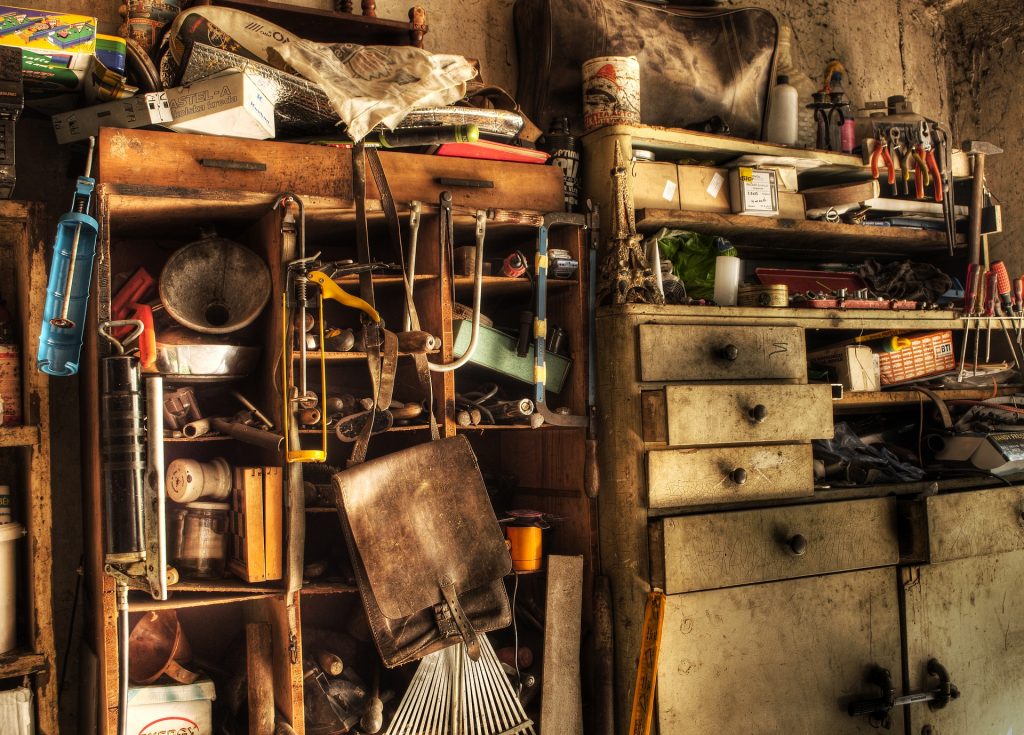This post is also available in Dutch.
For some people more than others, getting rid of stuff is a real challenge. As a result, all kinds of things pile up in different spots all over the house: the drawer of the bedside table, the bookshelves, folders and folders on the laptop (with names that have been chosen meticulously); not to mention the e-mail box. These people are hoarders, and they hoard to the point that their living conditions are not safe anymore.
Why do these hoarders tend to keep so much?
If you want to ask to a real hoarder, you may find a bunch of reasons. To start, some items are just emotional: they belong to the past and remind you of nice moments you had. Getting rid of them feels like betraying such memories. Other objects are necessary: you can be sure that at some point you are going to need that thing. No matter if that certain point in time is not in your foreseeable future. Also, there are things that you just want to keep because they were given by a person that was special to you. These items can be anything: a nice card you got for your birthday, or the souvenir a friend brought to you when travelling was still allowed. Well, you have to keep them: how could you do without, otherwise?
Yet, can such a hoarding attitude become problematic?
Actually, yes! When people tend to save an excessive number of objects regardless of their actual value, chances are that they suffer from a hoarding disorder. For these people, hoarding is quite compulsive: they cannot stop acquiring stuff. Just the idea of parting from one item creates anxiety, to which hoarding seems the only solution. Psychiatrists tell us that compulsive hoarding can be one symptom of obsessive compulsive disorder (OCD). In OCD, behaviours are repeated over time (compulsions) in order to manage re-occurring, unstoppable thoughts (obsessions). In this way, hoarding occurs as a response to the belief that one item will be necessary in the future. The consequences of hoarding are many: loss of space to work or conduct normal activities, and poor hygiene. Also, hoarding can create conflicts in a family, which can lead to social isolation and depression.
Hoarding takes a toll on physical and psychological well-being. What role does the brain play?
It seems that hoarding is also reflected in the brain. Researchers at King’s College in London pinpoint a specific region in the brain, the ventromedial prefrontal cortex (vMPFC). They saw that in people with a hoarding disorder, the vMPFC starts responding more at the sight of hoarded items compared to other objects. The vMPFC, together with other brain regions like the amygdala, is important for advantageous decision-making. The researchers explain that hoarders indeed struggle with the decision to keep or throw away an item. These difficulties might be associated with the way the vMPFC functions.
Do you also hoard to some extent? Should you be worried?
If your eyes cannot stop worrying about that pile of papers in front of you while reading this: relax. It is fine to keep things laying around, this happens to everyone. Just, next time you find yourself hoarding things, ask: do you really need this? Will anyone need this now or later? If the answer is no, well…toss it!
Author: Martina Arenella
Buddy: Felix Klassen
Editor: Rebecca Calcott
Translator: Floortje Bouwkamp
Editor Translation: Wessel Hieselaar
Credits: top image courtesy of Deedee86 in Pixabay
